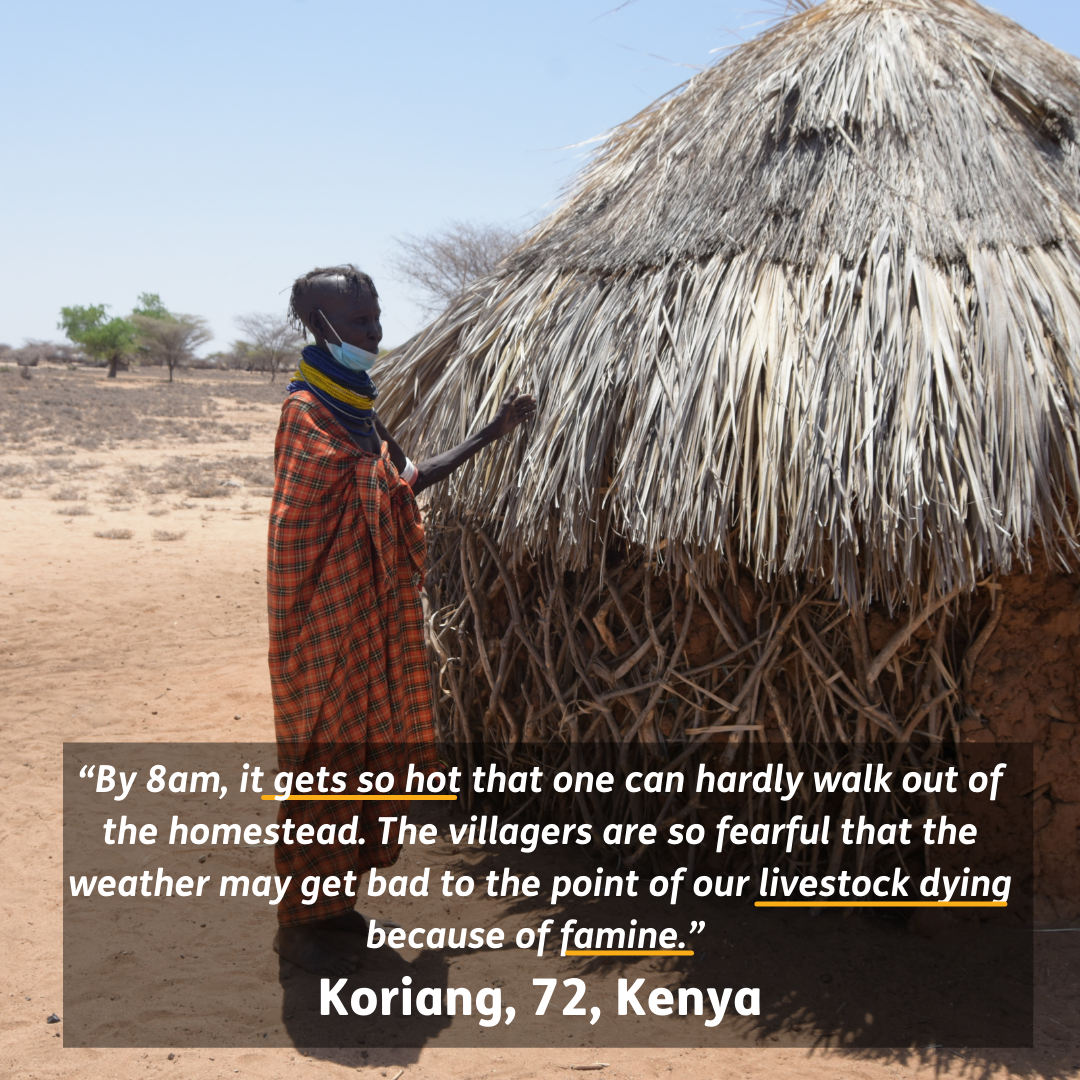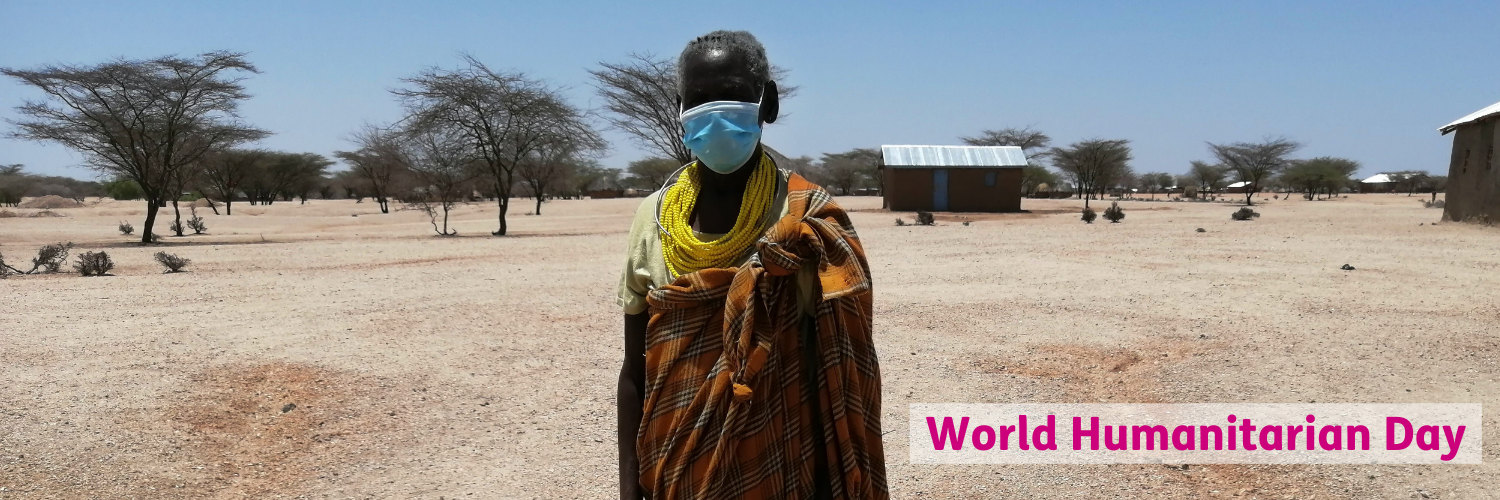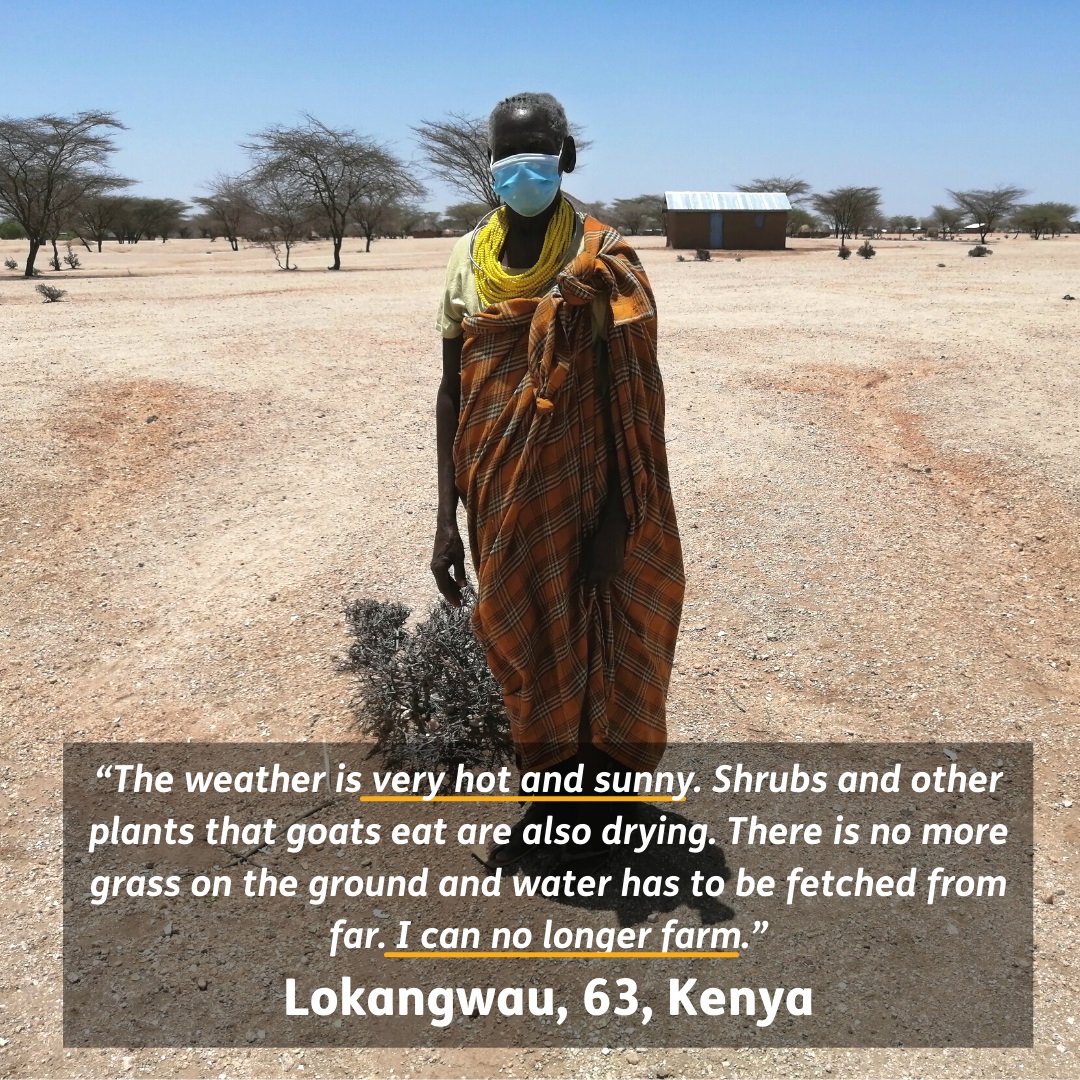
World Humanitarian Day: The Climate Emergency

Published on 18 August 2021 12:00 AM
Every year World Humanitarian Day marks a global celebration of people helping people. Age International celebrates the day by drawing attention to the incredible work of its heroes; - our partners, colleagues and specialists who work on humanitarian assistance worldwide.
Over the last year, they've not only worked incredibly hard to meet the needs of older people in crisis, but also in the face of a deadly global pandemic.
This World Humanitarian Day whilst recognising the incredible work of our heroes, we’re shedding light on the impact of climate crisis on those we work with and why humanitarian response work in the foreseeable future will be increasingly difficult.
A stark reality: code red for humanity
The climate emergency is wreaking havoc across the world at a scale that people on the ‘front lines’ and in the humanitarian community cannot manage.
A landmark report by the Intergovernmental Panel on Climate Change, described as ‘a code red for humanity’ by the UN chief, warns of increasingly extreme and frequent heatwaves, droughts and flooding, and a key temperature limit being broken in just over a decade.
Whether heatwaves, like the ones recently experienced in Greece and Turkey, or floods like those experienced this year in the United Kingdom, Germany and China, the stark and grim reality is these climate related crises are already being experienced in every continent across the globe, and for the world’s most at risk communities the escalation will be catastrophic.
Human activity is changing the climate in unprecedented and sometimes irreversible ways. Time is already running out for the world’s most at risk people.
Most at risk communities: struggle for survival
The impact of climate change is already being felt by some of the world’s most marginalised and at risk communities. Those who have contributed least to the global climate emergency are hit the hardest - older people and their families who are already in crisis, losing their homes, their livelihoods, and bearing the brunt of climate change. And their voices are unheard.


The global climate emergency and extreme weather could have terrible consequences for everyone, but older people like Koriang and Lokanwau are already amongst the worst affected. The climate emergency is adding to their struggle to grow food and sustain their livestock.
Strengthening resilience to climate change
Age International has been working to meet the needs of older people affected by climate change, an example of this is in the already challenging Thar desert region of India where climate change has been exacerbating droughts and making it extremely difficult for older people and their families to grow and harvest food. The dry and arid land was making it difficult for communities to live in and sustain themselves.
With our partner, GRAVIS, we supported older people to build Khadins, a traditional method of harvesting water and helped them to store the water underground. This has meant communities now have access to water all year-long to grow crops and feed their families.
Protecting humanity: we must act now
The immediate consequences of climate emergency for the world’s most at risk people, including older people, cannot be ignored. Their voices and needs must be heard by governments at the forefront of the UN Climate Change Conference (COP26).
Age International is standing with organisations across the globe joining #TheHumanRace calling for climate action in solidarity with people who need it the most. We encourage you to join too, use the hashtag #TheHumanRace #WorldHumanitarianDay and draw attention to the climate emergency.
Join #theHumanRace
Run, ride, swim, walk or do any activity of your choice for a cumulative 100 minutes between August 16 and August 31 in solidarity with vulnerable people and to tell world leaders that they expect developed countries to deliver on their decade-old pledge of $100 billion annually for climate mitigation and adaptation in developing countries. If you don’t wish to take part physically you can ADD YOUR VOICE.
 Follow us on social media
Follow us on social media
Keep seeing our stories or ask us a question - connect on Facebook and Twitter.
